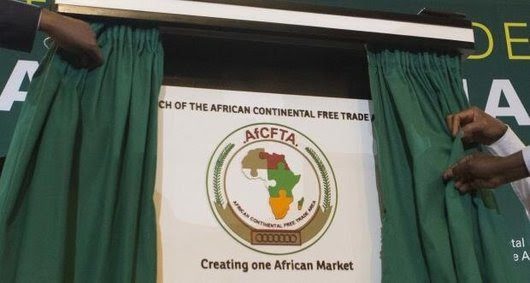APA-Addis Ababa (Ethiopia) As the implementation of the African Continental Free Trade Area (AfCFTA) Agreement gains momentum, it is important to allow the pan-African business community to take ownership of this flagship project, an African Union (AU) Commission official has urged.
The remark was made by Monique Nsanzabaganwa, deputy chairperson of the AU Commission, while addressing the AfCFTA Business Forum, which is co-hosted by the AfCFTA Secretariat and the Government of South Africa from April 16 to 19 in Cape Town, the AU said in a statement.
She said the adoption by the AU heads of state and government of the theme of the year 2023 as the “Year of AfCFTA: Acceleration of the African Continental Free Trade Area Implementation” is expected to generate greater political momentum, and the AfCFTA Business Forum has become one of the flagship-events contributing to the acceleration of the effective implementation of the AfCFTA agreement.
Noting that the AU, the AfCFTA Secretariat, African countries, regional economic communities, and development partners have delivered on the flagship free trade pact as part of the Agenda 2063, Nsanzabaganwa said “it is now up to the private sector to start trading.”
She said a number of instruments have been introduced to start trading under the AfCFTA, which include the AfCFTA e-Tariff Book, the Rules of Origin Manual, the African Trade Observatory, the Intra-African Trade Fair, the AfCFTA Adjustment Fund, the AfCFTA Automotive Fund, the Pan-African Payments and Settlement System (PAPSS), the AfCFTA Guided Trade Initiative, the African Business Council, and the AfCFTA Dispute Settlement Mechanism.
“All these instruments and tools are designed to ensure that legitimate business transactions thrive,” she said.
Noting that 47 African countries have ratified the treaty establishing the continental free trade pact, the AU Commission deputy chief said the situation serves as a clarion call to the customs authorities to do the necessary.
“This is an opportunity for our continent to leapfrog as we recover from the ravages of the COVID-19 pandemic and the geopolitics. It is equally an opportune moment to galvanize the continent from the extra-continent dynamics and start looking for home-grown solutions,” she said.
Nsanzabaganwa further emphasized the need to include women and youth owned businesses and small and medium-sized enterprises.
This requires a concerted effort that continues beyond the confines of this gathering and is characterized by key intervention areas of support such as capacity development and skills creation, access to finance, access to markets and access to information.
“The AfCFTA agreement is for everyone and has positioned women and youth in trade as engines of its successful implementation,” she said.
MG/as/APA


